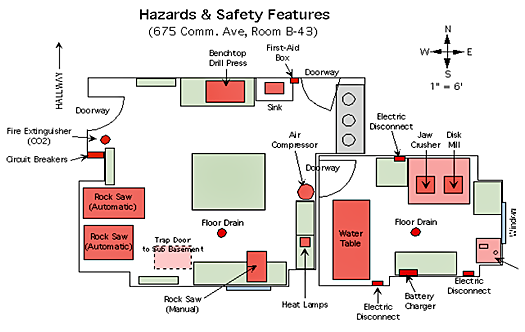Third Grade Curriculum. In the third grade curriculum, concepts from previous lessons, such as the ability to protect one’s self and others, are expanded upon. Strategies taught throughout the lessons focus on the development of the tools for personal safety and expand to include safety in the community. Copies of our lesson or reading devices to view lesson online. Determine the meaning of general academic and domain-specific words and phrases in a text relevant to a grade 3 topic or subject.
Sorry, Energy Education does not support your browser version. Please switch browsers or upgrade Internet Explorer to version 8 or above to view this website properly.
Many of the energy services around the house use electricity. It is extremely important to have various safety devices to protect from fire and electrocution. Industrial electricity use has similar problems. This page examines these electrical safety devices. Namely, fuses, circuit breakers, and ground fault circuit interrupters. For more details, please go to the main articles.
Both fuses and circuit breakers are the connection point between the electrical grid and an individual house.
For more details please see connecting homes to the electrical grid.
Fuse
- main article
A fuse is an electrical safety device that has the capability to protect an electric circuit from excessive electric current. It is designed to allow current through the circuit, but in the event that the current exceeds some maximum value it will open, severing the circuit.

Circuit breaker
- main article
Circuit breakers are devices that protect circuits from overload current conditions. They do the same job as fuses, but they are not destroyed when activated. They are more expensive to put in than fuses but since components rarely need to be replaced, it may be cheaper in the long term. Circuit breakers are often considered safer since the user can't as easily disable them (like putting the wrong size fuse in place).
Circuit breakers functionally open a switch which turns off all the electrical current before the excess electrical current can start a fire. Before resetting the circuit breaker, always turn off or unplug the electronic devices that were being used with the breaker was activated.
Ground fault circuit interrupt
Safety Devices Grade 30

- ground fault circuit interrupter
A ground fault circuit interrupt is a device designed to detect a tiny mismatch in currents (going into and out of the circuit), in order to prevent electrocution. They are mandatory in bathrooms and kitchens, and anywhere else in a house where water may come in contact with an electric circuit.[4]
For Further Reading
Safety Devices Grade 3 Exam
For further information please see the related pages below:

- Or explore a random page!
References
Safety Devices Grade 3 Pdf
- ↑This picture contributed by someone on the energy education team.
- ↑By BrokenSphere (Own work) [GFDL (http://www.gnu.org/copyleft/fdl.html) or CC BY-SA 3.0 (http://creativecommons.org/licenses/by-sa/3.0)], via Wikimedia Commons Wikimedia Commons [Online], Available: https://upload.wikimedia.org/wikipedia/commons/6/62/Eaton_circuit_breaker_panel_open.JPG
- ↑Wikimedia Commons [Online], Available: https://commons.wikimedia.org/wiki/File:GFCIReceptacle.jpg
- ↑R.T. Paynter, “Basic Electric Components and Meters,” in Introduction to Electricity, 1rst ed. NJ: Prentice-Hall, 2011, ch. 8, sec. 8.2, pp. 341-346.
Authors and Editors

Grade 3 Reading
Bethel Afework, Jordan Hanania, Braden Heffernan, James Jenden, Kailyn Stenhouse, Jasdeep Toor, Jason Donev
Last updated: April 28, 2020
Get Citation